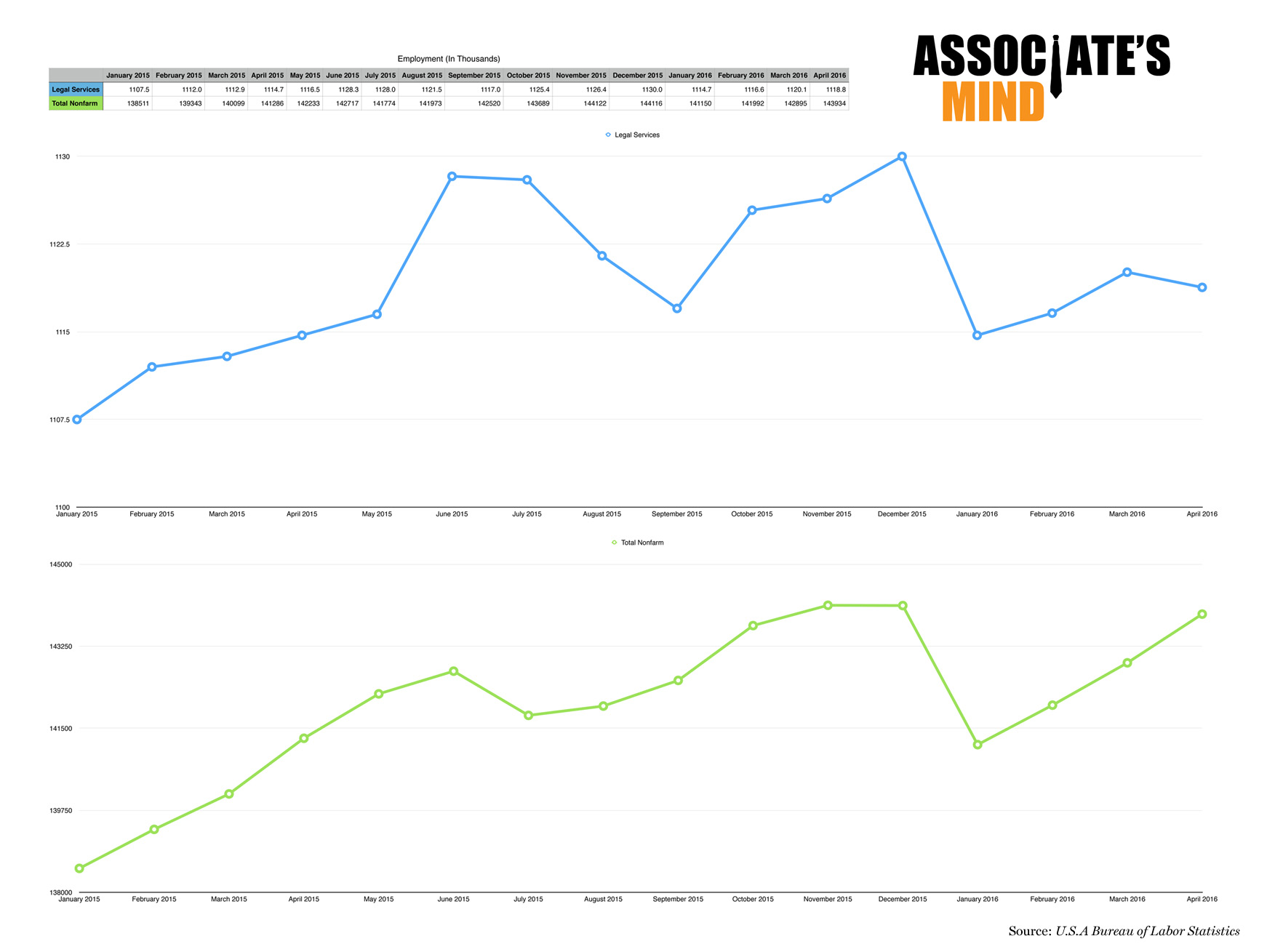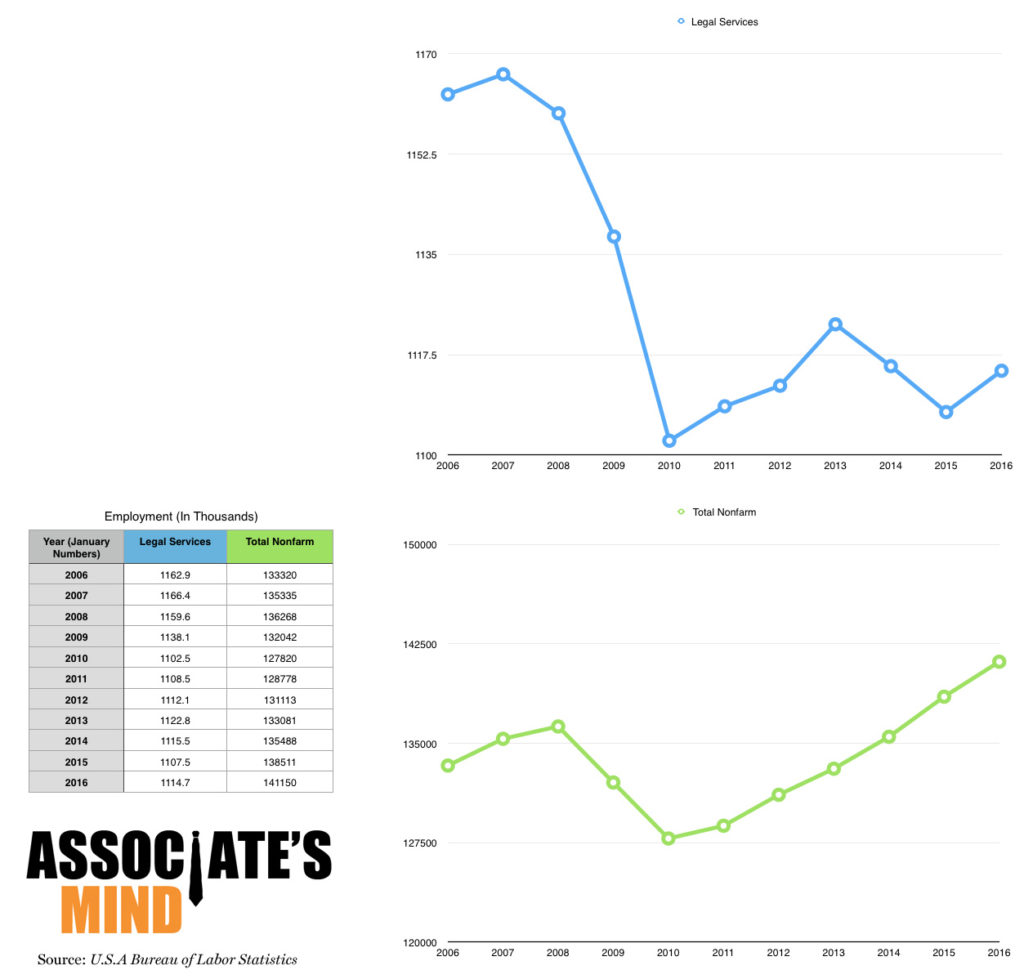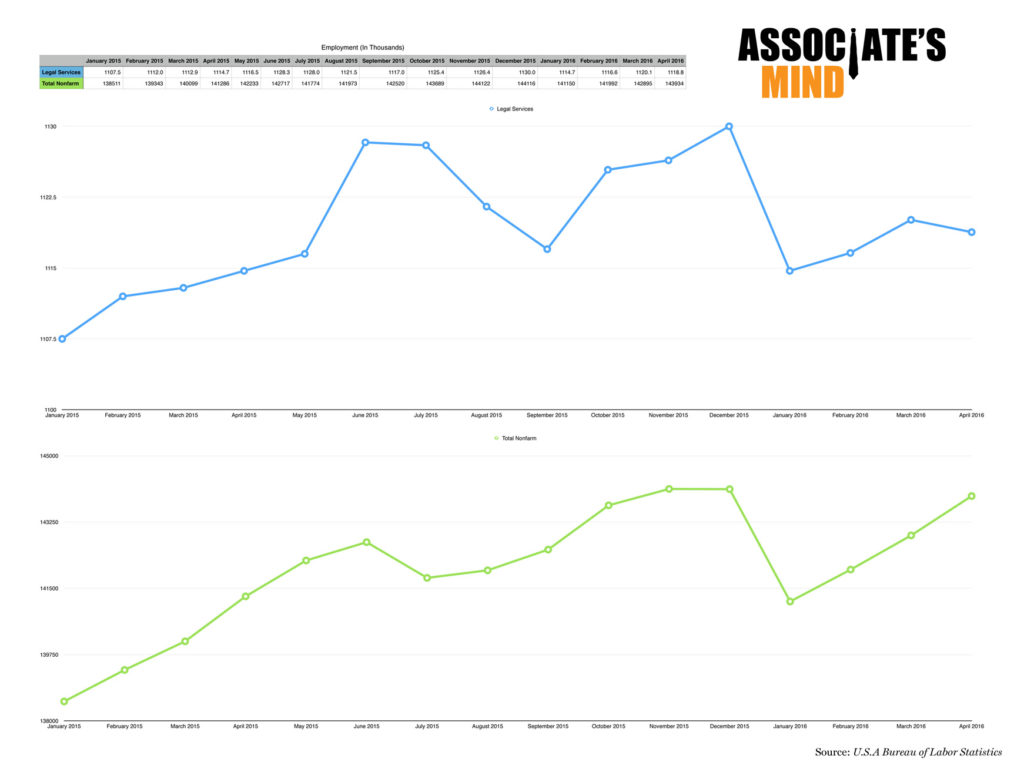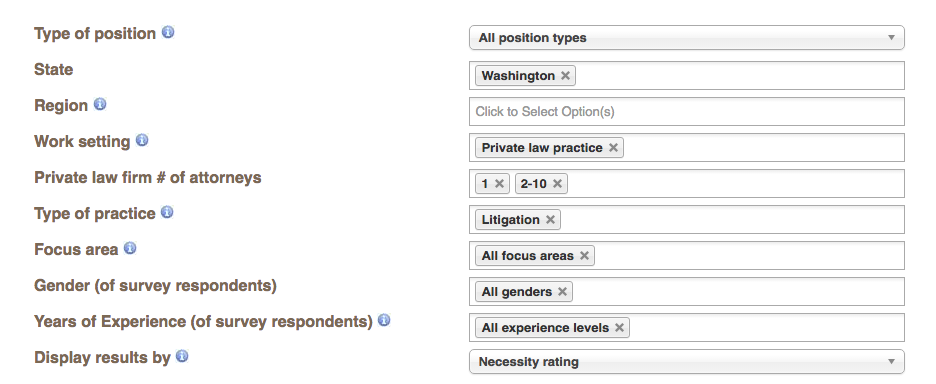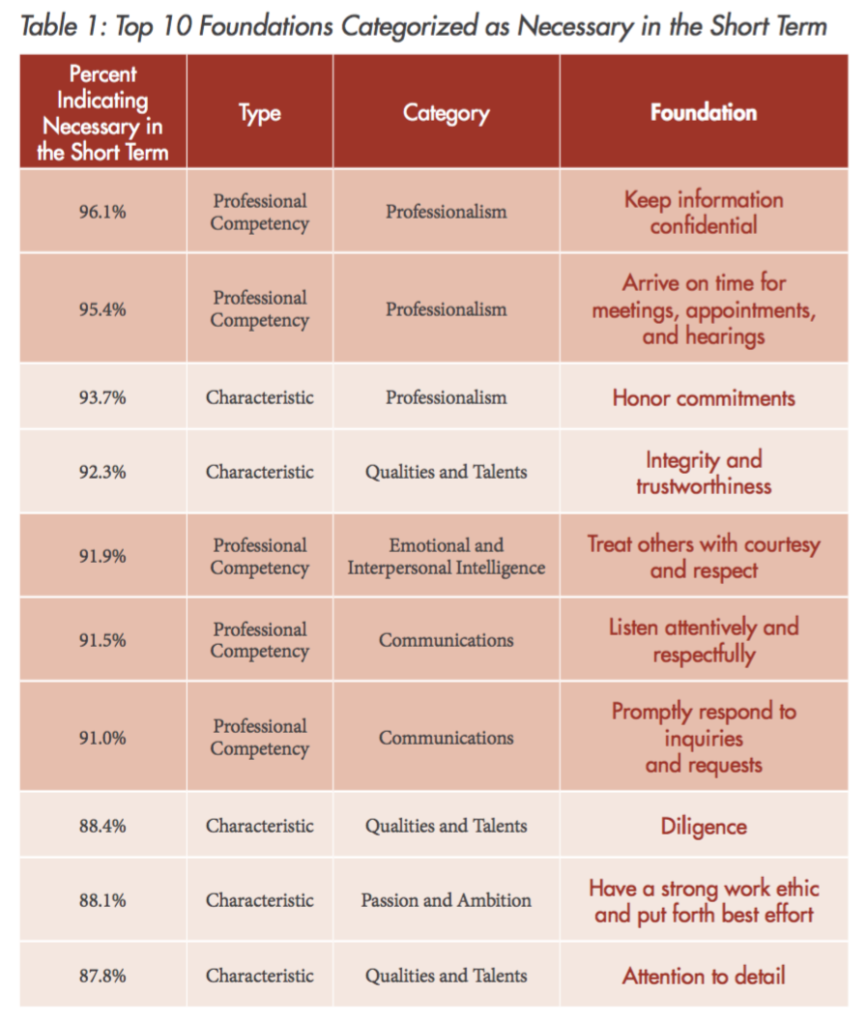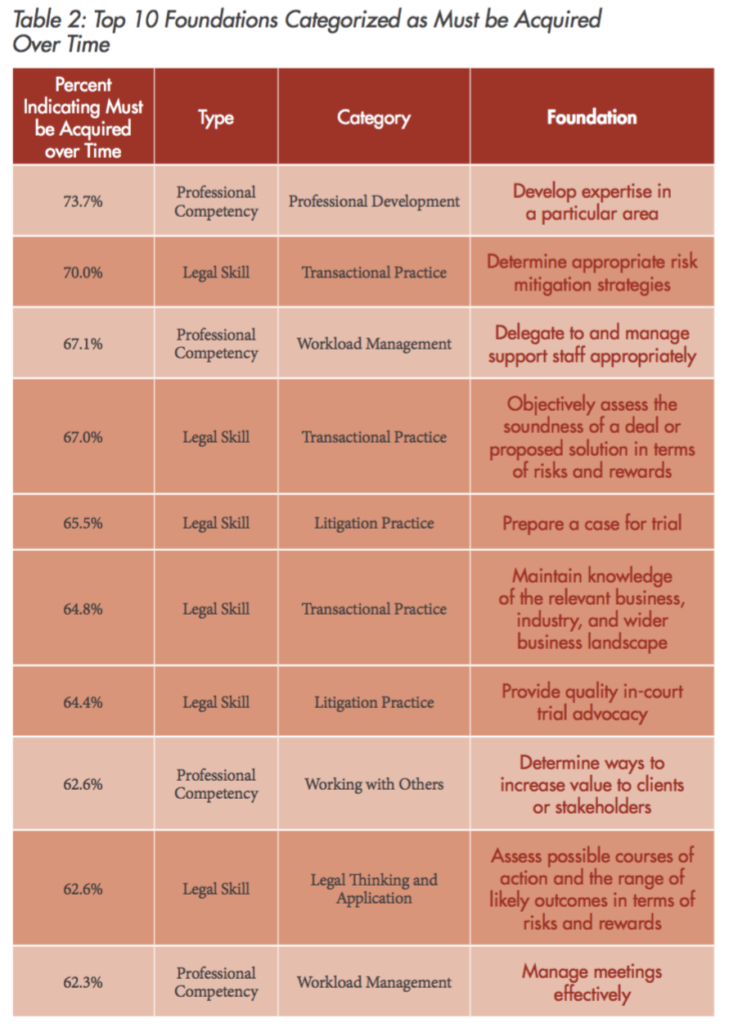The legal profession continues to reel from bottoming out in the late-2000s. It’s never fully recovered. For those who somehow still think this is hyperbole, I prepared a visual to help you understand, courtesy of information from the U.S. Bureau of Labor Statistics.
The above graph shows why we wound up with a “lost generation” of law school graduates that never got “attorney” jobs in the legal profession and either took JD-advantage jobs or left the industry all together.
The jobs didn’t “evolve.” There wasn’t a “restructuring.” The jobs are no more.
The jobs have ceased to be.
But if you look at the graph, there was a bump from 2010-2013. And there has been another upswing this past year. So let’s look at the past year or so at a bit more granular level to see if this is an upward trend or an anomaly.
Improving, but only intermittently so. Hard to say if this another sustainable bump or if the legal job market is just sort of stumbling along.
Are New Lawyers Ready?
Regardless, the job market for lawyers continues to be rough. And given increasing outsourcing/offshoring of work, an influx of “non-legal service providers,” in-house corporate departments taking on more work, and robots coming to kill us all, I doubt that the job market for lawyers is going to suddenly become rainbows and ponies anytime soon.
Law schools scrambled in response, trying to figure out ways to make their programs appealing to applicants. They added clinics. They added technology programs. They adopted experiential learning systems.1Remember this phrase? Everyone seems to have stopped talking about it though. Onto the next bright & shiny thing.
Anything to attract good applicants2This environment has resulted in great law school brain drain, along with an ever dwindling number of people applying to law schools. and maintain their precious USNWR rankings.
But were law schools really adapting? Were they teaching their students the appropriate skills needed to succeed as new lawyers?
That doesn’t seem to be the case.
According to BARBRI’s 2015 State of the Legal Field Survey, just 23% of practitioners believe new lawyers have sufficient skills to practice. Across the country, legal employers’ and bar organizations’ concerns about the readiness of new lawyers have crescendoed.
Enter IAALS
A few years ago, the Institute for the Advancement of the American Legal System (IAALS) set out to change that. They developed an extensive set of characteristics, skills, and competencies that new lawyers may need. They consulted with lawyers in private practice, government, corporations, the judiciary, and more.
Then the developed and deployed the most extensive survey of legal employers in years:
What are new lawyers lacking?
Our Foundations for Practice survey set out to define that. After working with state bar organizations to distribute the survey across the country, we are sitting on more than 24,000 responses from lawyers in all 50 states.
The results are extensive.
Exploring the Data
As opposed to hoarding the data and just telling you what they found, IAALS has made the data publically available along with a data visualization tool to help you drill down into the data. You can be as broad or as granular as you want. For example:
The data is so new, and so big, I haven’t had enough time to dive in. But I plan on mining the results for interesting information.
The Big Picture
If you want to get up to speed quickly, you can read the initial report, The Whole Lawyer and The Character Quotient (PDF). IAALS breaks down the major foundational skills, as identified by employers, necessary for success.
Are employers looking for ediscovery skills? Online presence? Work-life balance? Dedication to social justice?
Nope. By and large, legal employers continue to desire people of high moral character, honesty, and trustworthiness above almost any other skill, characteristic, or competency. That sounds familiar…
 A moral tone ought to be infused into the profession [law], which should drive such men out of it…
A moral tone ought to be infused into the profession [law], which should drive such men out of it…
Resolve to be honest at all events; and if, in your own judgment, you can not be an honest lawyer, resolve to be honest without being a lawyer — Choose some other occupation.
Honesty was essential to being a good lawyer 150 years ago. It’s essential to being a good lawyer today. It will be essential to be a good lawyer 150 years from now. It doesn’t go out of style.
[divider]
Disclaimer: I’m on the advisory group for this study. So while I genuinely think this is a great resource, you probably think I’m wildly biased and can’t trust my opinion. Which likely means you should buy my book about being a new lawyer instead.
References

